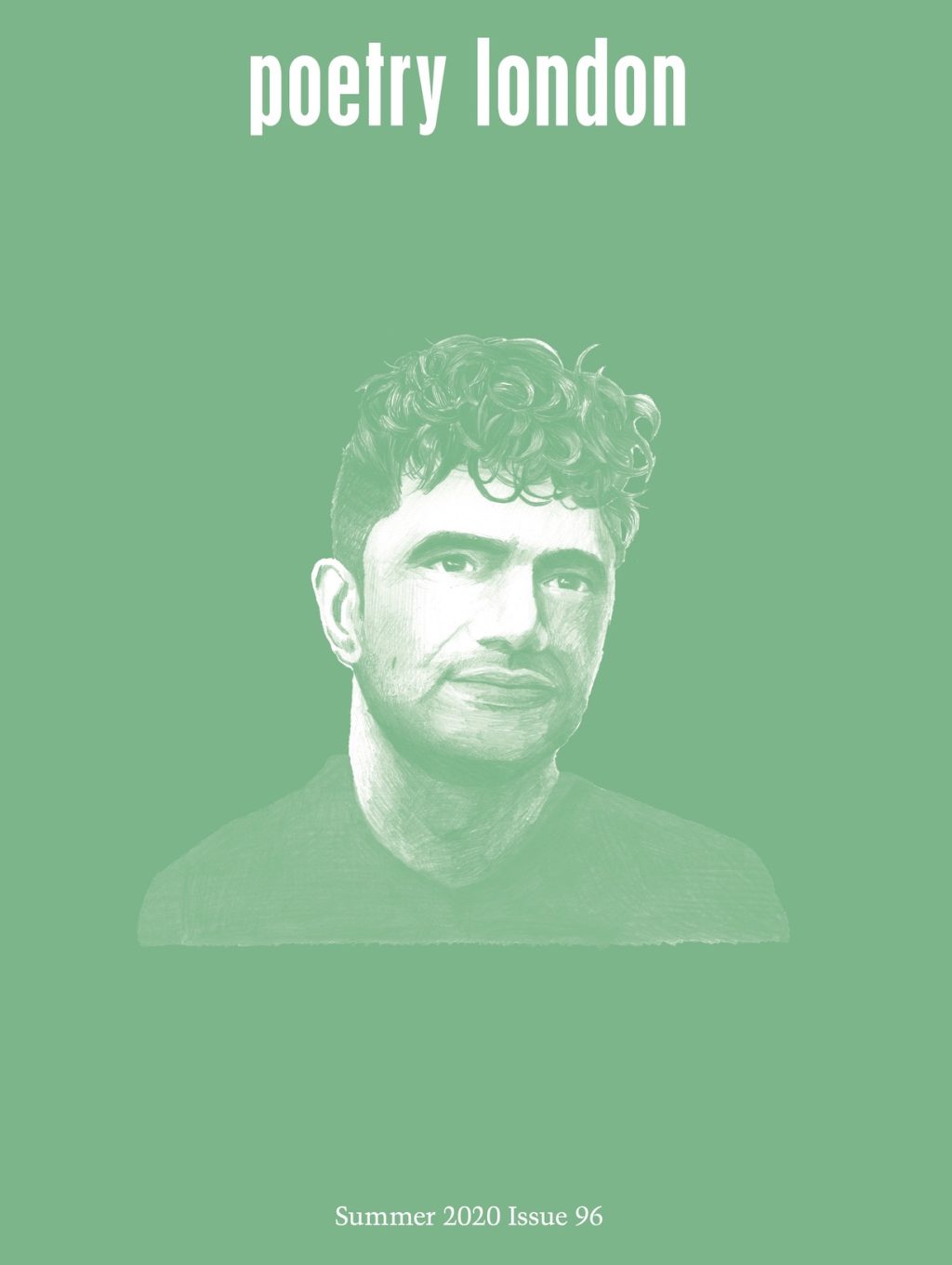Editorial: I Stayed Inside A Known City
Martha Sprackland
‘We just watched. A pandemic was always at the top of our national risk register – always – but when it came we just slowly watched. We could have been Germany but instead we were doomed by our incompetence, our hubris and our austerity.’
– Government source, Sunday Times
And just like that, everything changed. Or, at least, that’s how it feels to me as I write this, after five weeks in lockdown, a measure taken by the government in its belated attempt to halt the spread of COVID-19, the global pandemic that has raged through the first months of 2020. I don’t know whether by the time this issue is printed, where you stand reading this, some six weeks from now, the situation will have changed again – that’s one of the symptoms of this new reality; the unpredictability of the future, the precarity of our work, health, money, movement. Foresight in this peasouper has tapered to a point somewhere a handful of days in front of our noses.
a view I contemplate but can’t confront as if the stairs led somewhere to a pattern on the wall (Edward Doegar, ‘After After Remainder’)
Both the fickle future and the straitened present throw a cast over the poems in this issue, though few, if any, address the crisis directly. As I read them though, I feel several pains, the least of which is a new wistfulness for the quotidian pleasures whose airy normalcy now feels outlandish: people go over to their friends’ houses to play videogames, there are family dinners, there is physical contact. “We are being reminded of the richness of the body’s physical being – even that of strangers”, writes Victoria Adukwei Bulley, in conversation with Natalie Diaz. Those things are on hold – ‘one more in a line of abdications’, as Claudine Toutoungi writes, anxiously enumerating ‘additional reflections on / the imminent collapse of all things’. Vicki Feaver’s calisthenics, in which the speaker can ‘touch / the tips of my toes’, or ‘briefly lever my arms / to lift my body in a “plank”’, connect now in my mind with the opportunistic phenomenon of Joe Wicks’s YouTube tutorials, keeping the population ab-crunching and burpeeing from the screens of their houses. ‘I stayed inside a known city’ comes from John McCullough’s ‘Flower of Sulphur’, a poem for friendship at a time when our own is mediated through Zoom, phone calls, Whats App, handwritten letters.
I do not know how to make myself remember my dreams, to monitor the dosage of yellow in them... (Supriya Kaur Dhaliwal, ‘For Vincent Van Gogh; from Q-Park, Museumplein)
These pangs are real, but dwarfed by others. To date more than twenty thousand people in the UK have died of the virus, at best estimate. A fortnight from now, on this trajectory, we’ll pass thirty thousand. The anguish of families unable to speak to their loved ones before they die, unable to attend their funerals, is unimaginable. Frontline healthcare workers are imperilled by dwindling supplies of personal protective equipment, an entirely predictable tragedy caused by years of crippling austerity which have hollowed out an NHS now under immense strain. I don’t feel qualified, or equipped, even, to speak to this pain. I’m moved by Stephen Sexton’s essay on elegy in this issue of Poetry London, ‘the no-right-way of grief which makes the elegy’s ambit and jurisdiction so vast and various’. As well as facing the sheer cliff-side of grief Sexton speaks too of the smaller damages, of the way ‘Communication via telephone, for instance, functions by transmitting certain frequencies and excluding others; the voice is stripped of its natural resonances, and a compression of it reaches the other end. There is always loss.’
It’s hard to know how to begin to write about all these pains, the large and the small – right now, the priority is living through them. The urge to constantly check, to monitor the spiralling numbers, the mountainous graph- lines and the ticker-tape spool of conflicting advice, is strong, but we’d do better to keep our heads down, those of us who can, in support of those who can’t. We’re indoors, at the moment, it’s true. But these poems are windows on the world. In Geneviève Paiement’s poem, in the hopeful future and elsewhere, ‘Summer,’ far from being constrained, is ‘an open throat’.
What if the scene framed by this crate window (off-white wall of office-block throws spiny fruitless cherry tree into relief) reveals itself in time as fog, not painted brick at all, and then that fog reveals itself as smoke, and somewhere out beyond the seat of fire a vista well worth waiting for... (Michael Symmons Roberts, ‘TAKK’)
Poems will come out of these days, eventually. It’s worth giving them time to do so. For now, I’ll read these pages, which seem to sing of warm weather, with moments that belong to the paused world: Michael Longley’s ‘sprig of cherry blossom’; Nur Turkmani’s ‘beers by the water’ during ‘a heatstroke in Amsterdam’; Corrado Govoni’s drowsy ‘shaggy-haired bumblebee’, ‘dead drunk / on pollen and dew’;
...the window wide open, the sun, the breeze. (Daisy Thomas, ‘Matters which seemed beyond her comprehension’)


